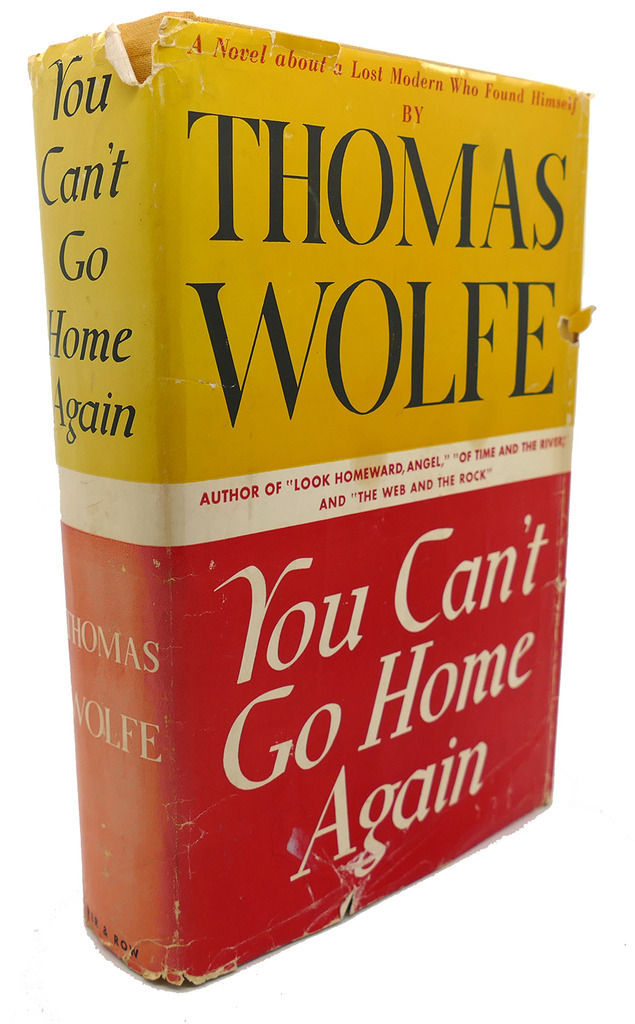



Usually with books this long, I keep thinking, "Let it be over already!" I thought that while reading this book, too, but at least I thoroughly enjoyed where Thomas Wolfe took me and how he got me there. His characterizations of people were so vivid that I feel as if I know these people he described so well and with so much heart and feeling. Thomas Wolfe really had a talent for getting to the heart of situations, thoughts and feelings that are difficult to express in such a way that a reader knows exactly where the writer is coming from. However, I'm glad he rambled on because he led me to some beautiful places. There were a couple of chapters that I thought were overly long, and possibly 100 or so pages could have been cut entirely without leaving the novel lacking. Every time I started reading it again I was always glad, though, because I really liked his writing. It took me almost a year: I kept putting it down-sometimes for weeks at a time-and picking it back up again. back home to the old forms and systems of things which once seemed everlasting but which are changing all the time.I finally finished this 704-page tome. away from all the strife and conflict of the world. He is a changed man yet a hopeful one, awake to the knowledge that one can never fully "go back home to your family, back home to your childhood. He discovers a world plagued by political uncertainty and on the brink of transformation, yet he finds within himself the capacity to meet it with optimism and a renewed love for his birthplace. Unsettled by their reaction and unsure of himself and his future, Webber begins a search for a greater understanding of his artistic identity that takes him deep into New York's hectic social whirl to London with an uninhibited group of expatriates and to Berlin, lying cold and sinister under Hitler's shadow. When his first novel is published, it brings him the fame he has sought, but it also brings the censure of his neighbors back home, who are outraged by his depiction of them. Upon the publication of "You Can't Go Home Again "in 1940, two years after Wolfe's death, "The New York Times Book Review "declared that it "will stand apart from everything else that he wrote because this is the book of a man who had come to terms with himself, who was on his way to mastery of his art, who had something profoundly important to say."ĭriven by dreams of literary success, George Webber has left his provincial hometown to make his name as a writer in New York City. A twentieth-century classic, Thomas Wolfe's magnificent novel is both the story of a young writer longing to make his mark upon the world and a sweeping portrait of America and Europe from the Great Depression through the years leading up to World War II.


 0 kommentar(er)
0 kommentar(er)
